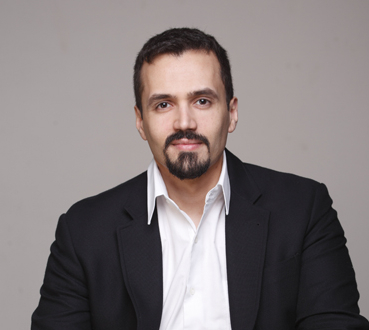
It feels like a day of reckoning for a reason, because it is one. As 30 June 2013 draws nearer, it does not feel at all like a repeat of 25 January 2011. Instead, it appears to be a repeat of 28 January 2011, combined with the protests of early December 2012 outside the presidential palace in Ittihadiya. Those were the days when violence was unnecessary, but practically inevitable, and protests were unavoidable, but insufficient to provoke any change directly. Those were days when the forces of revolution went to the streets to demand the former regime step down, and for the new regime that was born from the ashes of the old to fulfil the demands of the revolution. The 30 June protests see a combination of both, with strange bedfellows indeed. No one knows for certain what will come next, but everyone knows that there is one man who can change everything right now. And unfortunately, everyone is pretty certain that he won’t, and Egypt will pay the price.
Just as they did with the December protests, supporters of the former regime now see a chance to exploit widespread dissension against President Morsi. That opportunism is something that the protest movement does see; privately, one of its main organisers described remnants of the former regime as illegitimate sons (you can fill in the more colourful expression here), and decried any usurpation of the movement to fulfil nefarious ends against the revolution. However, many activists and supporters of 30 June discreetly admit a sense of inevitability. It is an inevitable ‘wave,’ a wave that was unleashed by the 25 January uprising. It is a wave on which the Muslim Brotherhood rose to power, but one which the Muslim Brotherhood now ignores. The level of polarisation that has taken place in this country, particularly animated by the extra-judicial decree of the president in November, and the resulting constitution, has never been defused. The economic melt-down that is slowly unfolding in Egypt, and aggravated by an incompetent government, is obvious to both national and international observers. The 30 June protests are inevitable, for the current situation that sees both deeply polarised political life and economic adversity is simply not sustainable.
No one ought to think that this economic situation has been caused by the Muslim Brotherhood; surely there would have been terrible economic circumstances to deal with in any case. But have any of the right steps been taken to ameliorate it? Did the president take advantage of the goodwill shown to him by so many supporters of the 25 January revolution, as they provided support against Ahmad Shafiq in the presidential electoral run-off, to build a pluralistic administration? Was there an administration that could take hard decisions to reform this ubiquitous state, and begin the road to recovery? On all counts, no. While people will argue for decades as to who was most at fault in that regard, the history books are going to record that a year after the first post-Mubarak president was elected in a free election, it was not a celebration for the people of Egypt. It was a confrontation, and it was a confrontation that one man could have avoided.
An obscene lynching took place in Giza on Sunday night; four Egyptians were killed, for no other reason except that they were Shi’a. Of course, the Presidency is not responsible for the lynching or the hateful discourse that led to it, but the government is responsible for maintaining order and for the outright rejection of that discourse entirely. It is patently not sufficient to simply condemn the violence and the inaction of the police forces; what vile hate speech led to it must also be condemned, and a vigorous investigation, holding all relevant personnel to account must also be done. If the government does neither, then it can only be regarded to have failed in its duties. It cannot simply blame forces beyond its control; it is the basic function of the state to maintain law and order, and if it cannot do that, what sort of state are we talking about? What sort of government are we talking about? What sort of presidency are we talking about?
In the days and weeks ahead, with different degrees of certainty and likelihood, the possibilities abound: military intervention, violence, social upheaval, deepening political polarisation, and economic degradation. There is one man that can avoid the worst of it, and minimise the damage of the rest. That man is not, despite the wishful thinking of far too many, Defence Minister Al-Sisi. The institution that can turn this around is not the Egyptian military. Only one person can decide whether the anniversary of the first free elected president of Egypt is a day to remember as a celebration, or a collision. He happens to be the same man who actually won those elections a year ago on 30 June, and who now occupies the office of the President of the Arab Republic of Egypt.
The 25 January uprising was inevitable, and it is miraculous it did not turn out to be far more chaotic and destructive. But the uprising could have been averted, or not even been as messy as it was, had Hosni Mubarak been more flexible and forward-thinking. Today, Hosni Mubarak is in jail, and there is now a new leader of Egypt, who was elected a year ago to fulfil the hopes of a revolution. But his most noteworthy and startling achievement on 30 June 2013, one year later, will hardly be one that the history books will laud; in all likelihood, he will be recorded as the president that brought together opponents and supporters of Hosni Mubarak in one movement, as bizarre as that might be. Some may say this is too much of a heavy burden to put on one man, but that is the job that President Mohammed Morsi campaigned for and won. No-one said it was an easy job to have, but has it he does, and now he must live up to it. If he doesn’t, or can’t, he can blame only the voters for voting him into office, and himself for running.

